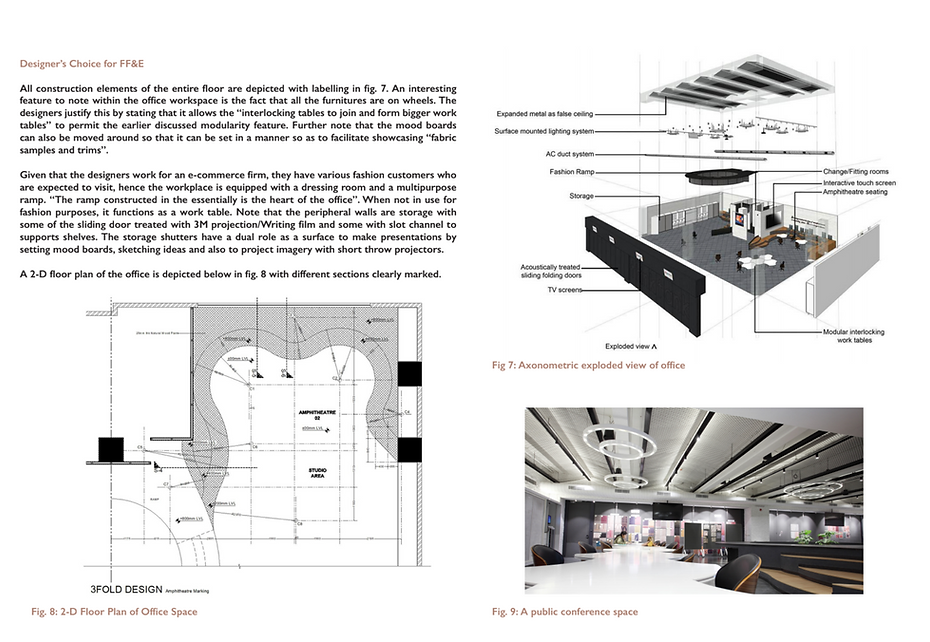Rationale
Rationale
Adverse health effects due to long hours of sitting still exist among IT desk job workers in the city of Bangalore in India due to lack of ergonomic furnishings and constant work pressure. Researchers at the Neuromusculoskeletal Rehabilitation Centre in Bangalore, India conducted a study on a group of 4500 desk-job workers from offices of the IT divisions of various companies in India and found that 63 % of the participants reported musculoskeletal pain.
A recent study conducted by the KLEU Institute of Physiotherapy in India highlighted how work-related musculoskeletal pain among IT office workers spread from the neck to the “shoulder, arm, or base of the skull”. There hence exists a high risk for computer professionals in India to fall victim to health disorders that not only affect them physically but also mentally. Strong findings suggest the correlation of musculoskeletal pain with physiological changes such as disfigured posture, high stress, and blood pressure, and muscle strain along with social inactivity, sleep deprivation, and stress. Given this, the aforementioned researchers at NRC have drawn a strong connection between musculoskeletal pain and loss of productivity. Studies conducted by doctors at VMMC & Safdarjung Hospital in India have concluded that “poor office ergonomics” is to be blamed for the pain and discomfort brought forth by long uninterrupted sitting sessions. This includes the lack of standing desks, keyboards designed to account for the probability of carpal tunnel syndrome, and also the choice of dull colors and patterns within the office space leading to an environment that does not contribute to alleviating work stress.
Gaps in literature have been identified to surround design flaws in offices specifically located in Bangalore. The conducting of precedent studies can however assist with bridging this gap. Careful literature review, surveys, precedent studies, and interviews of computer professionals to find out the right changes needed in their environment are required to reduce the harmful health impacts they face on a daily basis.
Rationale
Adverse health effects due to long hours of sitting still exist among IT desk job workers in the city of Bangalore in India due to lack of ergonomic furnishings and constant work pressure. Researchers at the Neuromusculoskeletal Rehabilitation Centre in Bangalore, India conducted a study on a group of 4500 desk-job workers from offices of the IT divisions of various companies in India and found that 63 % of the participants reported musculoskeletal pain.
A recent study conducted by the KLEU Institute of Physiotherapy in India highlighted how work-related musculoskeletal pain among IT office workers spread from the neck to the “shoulder, arm, or base of the skull”. There hence exists a high risk for computer professionals in India to fall victim to health disorders that not only affect them physically but also mentally. Strong findings suggest the correlation of musculoskeletal pain with physiological changes such as disfigured posture, high stress, and blood pressure, and muscle strain along with social inactivity, sleep deprivation, and stress. Given this, the aforementioned researchers at NRC have drawn a strong connection between musculoskeletal pain and loss of productivity. Studies conducted by doctors at VMMC & Safdarjung Hospital in India have concluded that “poor office ergonomics” is to be blamed for the pain and discomfort brought forth by long uninterrupted sitting sessions. This includes the lack of standing desks, keyboards designed to account for the probability of carpal tunnel syndrome, and also the choice of dull colors and patterns within the office space leading to an environment that does not contribute to alleviating work stress.
Gaps in literature have been identified to surround design flaws in offices specifically located in Bangalore. The conducting of precedent studies can however assist with bridging this gap. Careful literature review, surveys, precedent studies, and interviews of computer professionals to find out the right changes needed in their environment are required to reduce the harmful health impacts they face on a daily basis.




